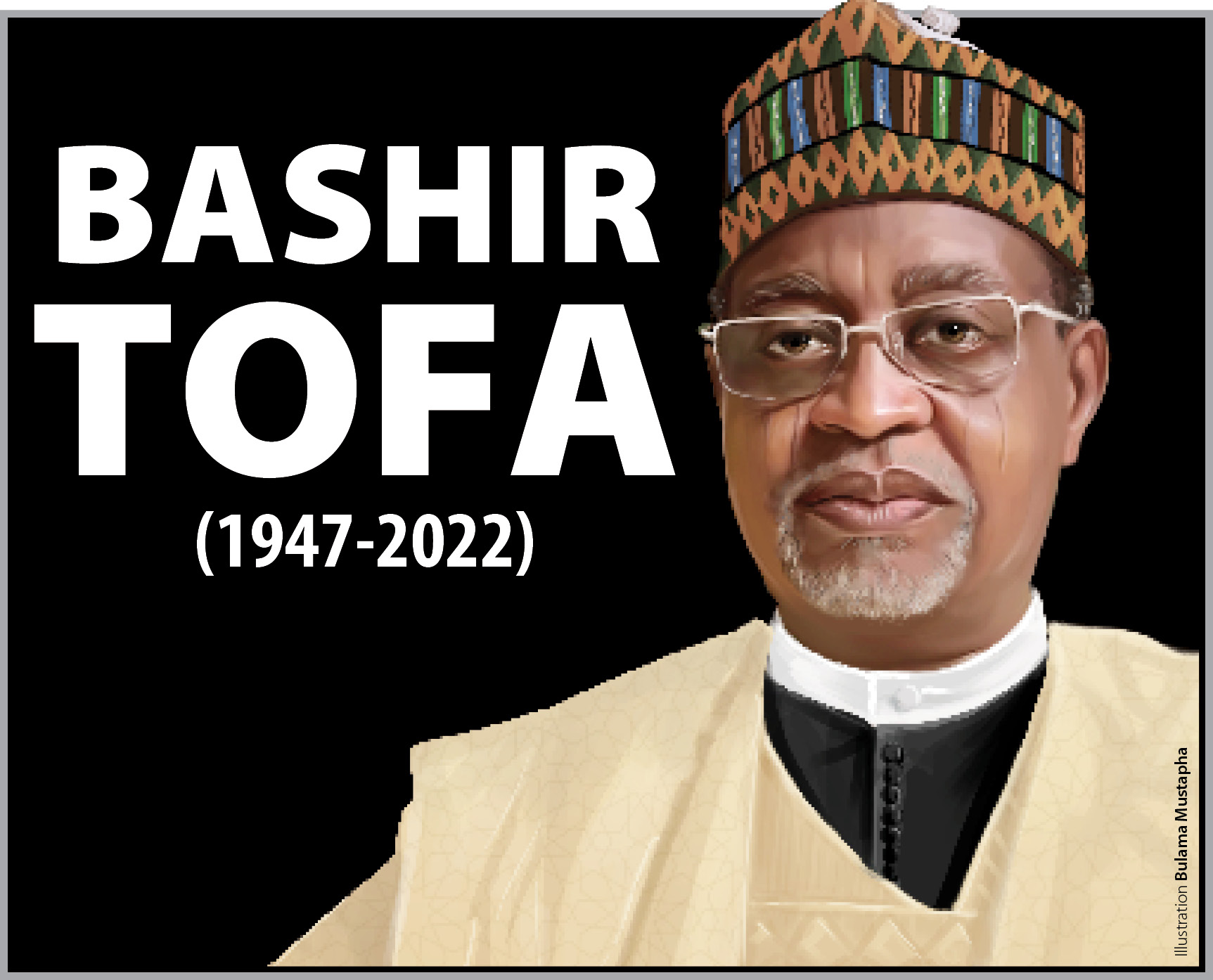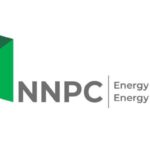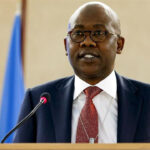In this exclusive interview granted our Hausa sister publication, Aminiya, on December 21, 2021, few days before his demise on January 3, 2022, Alhaji Bashir Othman Tofa gave an insight into his life, the June 12, 1993 presidential election, which he contested against MKO Abiola, among other issues. He also gave suggestions on how to get Nigeria right. Excerpts:
From Lubabatu I. Garba, Usman B. Balarabe & Siddiq S. Shuaib, Kano
Early life and education
I was born in Kano on June 20, 1947. I did my senior primary school in Gwale and secondary education at Provincial Secondary School, now Rumfa College, in Kano. I did not further my education there.
However, in 1968 when Alhaji Ado Sanusi was appointed the Ambassador to Sudan, my father linked me up with him and that was how he took me to Sudan for my higher degree education in Medicine. Unfortunately, due to their academic calendar, I had to wait for an additional one year in Khartoum to begin my studies in the university. However, I utilised that opportunity and worked temporarily at the embassy. It was during that moment that I began my writings and even published my first book, titled Jagoran Alhazai (A Guide for Pilgrims), which talked about pilgrimage and how people from different parts travel by road and air to perform pilgrimage in Saudi Arabia.
I later realised that I could not stay in Khartoum any longer if my guardian had to leave the country since he was a diplomat and could move anytime, so I told my father that I wanted to look for another admission somewhere else. He agreed, and that was how I looked for admission at Birmingham in England, where my father paid for my A-levels.
In August 1969, I was also enrolled in another school, Greenmore College. Of course I had to take O’level and A’ level certificates. I studied Physics, Chemistry and Mathematics. In fact, that was the reason I have been able to include in my writings issues related to sciences.

Since I was in Birmingham, I chose to study at Birmingham University, where I was offered a conditional admission for Medicine. In fact, studying Medicine was what I had always wanted to do from my childhood. Because of my passion for the medical profession people used to call me Dr Bashir. Unfortunately, during our first autopsy practical, I got scared and fainted. I never imagined that studying Medicine meant that I had to cut the body of human beings. Of course, in Biology we learnt about dissection of toads, but not human beings. Because of that I decided to opt out of Medicine and switched to another profession.
Gladly, my principal was a nice man, and since the college was more of international students, I was asked if I had a preference in mind regarding the course I wanted to do. So I said I wanted to study Architecture. However, I could not get Architecture, but I was given admission to study Economics despite having a science background. I was very lucky to have studied Physics, where I was familiar with a lot of graphs. That was how I found myself studying Economics very easily because of graphs.
After I graduated, I continued with my postgraduate education in another school close to London, Anglia Postgraduate Management Centre.
What did you venture into on return from the UK?
After my postgraduate education, I returned home in 1975. I did not want to work in the government. My father asked what I wanted to do and I told him I wanted to go into business. He linked me up with his friend, Alhaji Ibrahim DanKani. That was how I got involved in the business of importation and sale of cars, which was also my father’s business.
I later started the importation of furniture, and consequently established an ice cream and dry cleaning business, but they all collapsed because of untrustworthy people and their behaviours. Unfortunately, I put my trust in them.
I established so many businesses but they collapsed. Because of that, I realised that if you want to sustain a business you have to be there and give your full commitment.
The same way my father asked what I would like to do, I also ask my children what they want to do and support them on that. That is how it is supposed to be. Rather than telling them what to do, support them in what they want.
Who were your childhood friends and schoolmates?
A lot of my childhood friends are dead, especially those we started primary education together. Some of them are people like Salisu Bayero, Muhammad Labbo, Dr Shamsudden Usman, my brother, Faiz Baffa and Ahmad Aminu Yola, as well as others, who are also relatives. But in England, I had a lot of friends because during our stay there we also established a union of Kano State students. Bello Isa Bayero was also part of it, and people like Abubakar Rimi, Muktari Dangana, all from Kano State, as well as so many others, who were not from Kano. Some of them are still alive while a lot have died.
At what point did you venture into politics?
I started politics in London during my studies, and it was during Nigeria’s Civil War. We did something notable, which was recognised by the High Commission under Ambassador Sule Kolo. All the Kano State students offered our one month allowances to support the Nigerian Army.
And because of that, we were entrusted with a responsibility by the Kano State Government regarding our students in England. In fact, we became like a liaison office between Kano State students in England and the state government regarding any scholarship screening and awards during the administration of Audu Bako.
I was actively involved in student union politics; I was even amongst the key principals who resuscitated the Nigerian Students Union in England after it had been inactive for years so that we could support the Nigerian Army during the war. I was appointed as welfare officer of the union.
We came back to Nigeria during the establishment of local governments and after the commissions had been created under Sultan Dasuki as chairman. That was the beginning of the destruction of emirate councils in Nigeria. This is because the way the protocols were designed apparently shows the superiority of local government chairman over a king or emir. That was how our traditional and cultural heritages began to edge towards destruction overtime, not only in the North but in Nigeria generally.
It was during that period that I was nominated as a councillor in Dawakin Tofa Local Government during the administration of Colonel Sani Bello. I was in that council up to the time the issue of election into the Constituent Assembly arose.
There was the need for representation and I declared interest. My uncle also declared interest for that same position. He tried to convince me to step down for him but I insisted on participating in the election. That was how I did my campaign and won the election into the Constituent Assembly.
I was in the Constituent Assembly when the need to create political parties arose. Most of us, Kano people at that time were youths. In the North we had representatives from each state, and in Kano we had Professor Ibrahim Umar, who represented us and attended meetings concerning that aspect. Whatever we discussed he relayed to them, and whatever they discussed he would also relay back to us.
During that period I wrote a memo about the need for us to get involved and participate in politics. And because I was the one that made the suggestion, it was decided that the meeting would be held in Kano. But unfortunately, Colonel Sani Bello refused to allow any political meeting or gathering to take place in the Government House. However, one of us, Ahmadu Rufa’i, gave us his house in Kano to hold the gathering, where a lot of people from different parts of Nigeria attended. But because the apartment could not accommodate the number of the people that came for the event, we decided to move the gathering to Satellite Village in Badagry, Lagos State.
We held our gathering successfully. It was the outcome of that gathering that gave birth to the National Movement of Nigeria (NMN), which Dr Ibrahim Tahir was the secretary. Gradually, committees were formed and a lot of people like Malam Aminu Kano, Shehu Shagari were invited. Consequently, that NMN metamorphosed into the National Party of Nigeria (NPN).
After the first convention and interim members were elected, the same with the second convention, a lot of people declared interest to participate in the presidential election. I was the first secretary in Kano State. The late Maitama Sule wanted to participate in the presidential bid; people like Adamu Ciroma, Shehu Shagari, Olusola Saraki and others also declared interest, but only one of them would be elected. Eventually, Shagari and Maitama Sule had the highest number of votes. I calculated and convinced Sule to step down for Shagari. He agreed and stepped down. Things continued like that and politics kept unfolding.
One year after, I participated in the bid for the position of the financial secretary of the party against one of my brothers, Alhaji Isyaku Ibrahim, one of the richest persons in the North at that time. Maitama Sule and Shehu Kangiwa worked a lot and campaigned for me for that position; and fortunately, I emerged victorious and became the financial secretary of the party.
How was the journey to the Third Republic and the June June 12 elections?
When the military government of President Ibrahim Babangida decided to lift the ban on politics, those of us who were in NPN, such as Lawan Kaita, John Kadia, Adamu Ciroma, Ibrahim Gusau and many others, called for a meeting in Kaduna.
We went to the meeting and they noticed that I was not interested in their preparations. Kaita asked if there was a reason for that; and of course I told him that I was not interested because there was no logic in doing that again after it was discarded by the military. I further explained to him that if they wished to do it they should go ahead, but we were going to create our own new party for the youth.
After we came back from the meeting, I called my fellow youths and informed them of what happened and the need to strategise on the creation of a new political party. That was what happened. I bought three vehicles for that purpose to shuttle our members for gatherings, all in preparations for our new party.
We travelled from state to state looking for people to join our party, regardless of their religion and tribe. Eventually, we came up with a political party known as Liberal Convention, with members from different parts of the country. Fortunately, we were registered. But because there were other political parties that had not met the criteria to be registered because of one reason or another, which could create another problem, Babangida logically came up with a file and read out the National Republican Convention (NRC) and the Social Democratic Party (SDP), which were referred to as a little to the left (SDP) and a little to the right (NRC).
The Liberal Convention and others fell under the NRC while the remaining fell under the SDP. We agreed. Fortunately, the Liberal Convention was the dominant force in the NRC with about 70 per cent and I was the leader. Of course, after the A4 convention, which comprised of ward, local government, state and national, I was able to scale through and became the presidential candidate under the NRC.
I cannot say anything regarding the issue of June 12 because an election was conducted and later on annulled. I had no idea what happened and I still do not know the reason it was annulled.
Looking at the myriads of problems bedevilling this country from corruption to insecurity, what do you think is the way out for Nigeria?
All these politicians must be retired for Nigeria to progress. There is the need to have a brand new young people to participate in the politics of Nigeria, rather than those politicians who have been reshuffling themselves over and over again among different political parties.
There must be a new system to create new political parties with brand new people to make Nigeria work again.
The youth must be firm, independent and with great ideas to participate in the politics rather than being used as tools by these politicians who have been contesting for years, to manipulate elections and create violence.
Minor political parties must be uplifted. This is what we are working to establish in Kano State.
In Kano, people are tired, they want to see new things and ideas to bring back and maintain their long-rooted culture, traditions and respects rather than those political parties that remain in power and make things difficult.
A new political party must be formed by the people, who will select the right candidates to participate in certain positions in order to bring the change they need. They must try, even for once.
It is sad to see people giving accolades to thieves who looted their money, celebrating them whenever they give them some little money. People must change to change the narrative.
You have written a number of books, what should readers expect next from you?
I wrote14 Hausa books and subsequently published them all. I am now writing one titled, “Sunayen mutane da wurare a Duniyar Islama.” It is on names of people and places of Islam. I am on page 740. I am doing it in alphabetical order. I am on letter U. It is almost complete. I am eager to see the book published.
Whenever I fall sick I become worried that I may not complete the book. I just keep praying to God to spare a time for me to finish writing the book. Wallahi, if I publish it I will be fulfilled.




